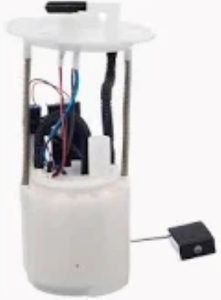A weak Fuel Pump manifests itself in different symptoms, most of which are related to the inconsistency of fuel delivery and, correspondingly, the performance of the engine. In this case, one of the most telling signs is a considerable loss of power during accelerations, because the pump fails to keep the normal pressure range of 40-60 PSI. Because of the drop in pressure, the engine runs lean-too little fuel is fed into the engine to cope with the needs, especially when driving at high speed or uphill.
Frequency in sputtering and stalling of the engine also point toward a weak pump. Mechanics note that when internal fuel pressure falls below the ideal range, stalling often occurs with the vehicle either idling or at low speeds due to the inadequate feed of fuel into the engine. This is more common in high-mileage vehicles due to wear on the components, which in turn reduces their efficiency over time.

The other very common symptom of a failing pump is prolonged cranking on startup. Because the fuel pump cannot maintain pressure in the fuel line, it takes much longer to start the engine since it will have to work its way up to build up adequate pressure for ignition. According to experts, testing the fuel pressure is recommended in case delays in startups persist, which may mean a weakening pump.
Another red flag is lowered fuel efficiency. Because a weak pump only provides inconsistent fuel delivery, combustion ends up being incomplete. This automatically calls for more fuel than would normally be required in order to produce a given amount of power. In fact, studies show that even as little as a 10% drop in fuel pump efficiency may lead to as high as 15% higher fuel consumption, adding up overall costs to the driver.
Excessive noise in the fuel tank area, such as a whining or buzzing noise, may also serve as an indication that the pump is working harder to compensate for the lost efficiency. While some noise is normal, in general, a very loud pump usually suggests wear or an obstructed filter that further strains the pump.
To be able to recognize these signs, checking your Fuel Pump immediately will prevent you from getting more extensive repairs, which keeps your vehicle running consistently.